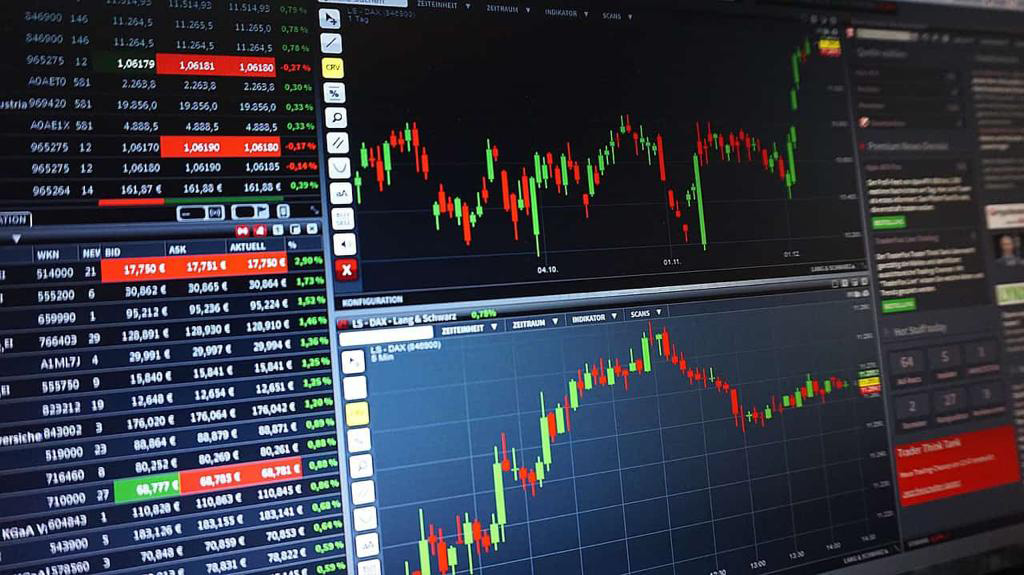Simply put, forex trading involves buying and selling different currencies on a market to profit from fluctuations in their exchange rates. There are two main types of currency transactions – spot transactions, which involve buying and selling currency immediately, and forwards, which are agreements to buy or sell a currency at a predetermined exchange rate in the future.
Furthermore, traders can also speculate on the direction of currency pairs to make a profit. This is known as trading forex on margin and involves leveraging your capital to increase your potential return.
Forex trading is a prevalent form of investment and speculation, offering traders a range of opportunities to make money from the currency. But with so much online information, it can be difficult for beginners to know where to start.
This article will look at some essential tips and strategies for novice forex traders, helping you get started in foreign exchange trading.
Risk management
One of the most important aspects of forex trading is risk management. The market can be volatile, with significant fluctuations in currency values over short periods. As such, it pays to have a sound strategy for limiting losses and maximising profits. Risk management typically involves setting stop-loss orders and taking profit when certain conditions have been met. Practising good money management techniques is essential, such as diversifying your portfolio and only risking capital you can afford to lose.
It pays to stay updated with the latest news and economic data from around the world, as these can significantly impact values.
Strategy development
Another critical element in successful forex trading is developing an effective strategy. A good trading strategy should incorporate technical analysis, risk management, and market sentiment. Technical analysis involves studying charts to identify patterns and indicators that could provide insight into future price movements. Risk management focuses on controlling losses while maximising profits, while market sentiment involves understanding the psychology of the markets to capitalise on opportunities.
Another critical element of a trading strategy is finding appropriate entry and exit points. This requires being able to identify when markets are overbought or oversold, as well as being able to identify good entry and exit points based on technical indicators.

Trading platforms
In addition to understanding how forex works, it’s also vital for traders to be familiar with different types of trading platforms. The most popular platforms are MetaTrader 4 (MT4) and MetaTrader 5 (MT5), which offer access to various currency instruments, charting tools, and automated trading features; another example of a highly rated platform is ADSS. It’s essential to familiarise yourself with the platform’s features before trading, as this can help ensure a smoother and more successful experience.
To boot, traders should also look into copy trading services such as eToro, which allow you to trade with the help of experienced and successful traders. This can be an excellent way for novice traders to learn the ropes and get an insight into what other traders are doing.
Getting started
Getting started in forex trading can be daunting, but it doesn’t have to be. With the proper education and practice, you can quickly start making profits in the foreign exchange markets. To get started, familiarise yourself with the basics of forex trading, such as currency pairs, risk management, and strategy development, before opening a live trading account.
When you’re ready to start trading, choose a reputable broker and practise good money management techniques. With the proper education and practice, you can be well on your way to becoming a successful forex trader.
Tips on choosing a broker
When choosing a broker, it pays to do your research. Make sure the broker is regulated and has good reviews from other traders. Also, look at the fees, spreads, and minimum deposits the broker offers before deciding. It’s also important to consider whether you want an online or offline trading platform, as this can impact your experience.
Another essential element to consider is the type of trading instruments the broker offers. Some brokers offer a wide variety of currency pairs, while others only offer a restricted selection. It pays to ensure access to markets that suit your trading style and objectives.
To that end
Forex trading allows traders to take advantage of fluctuations in global currency markets. However, those new to the market must approach forex trading carefully and develop risk management strategies and effective trading plans. Being aware of different platforms, understanding how the market works, and analysing charts are essential to successful forex trading. By following these tips and strategies, novice traders should be able to confidently get started in the world of foreign exchange trading.
Sources: mastercard.com / capitalone.com

Related Posts
« How fundamental news affect the forex market? Everything about corporate performance management and why you need it »









